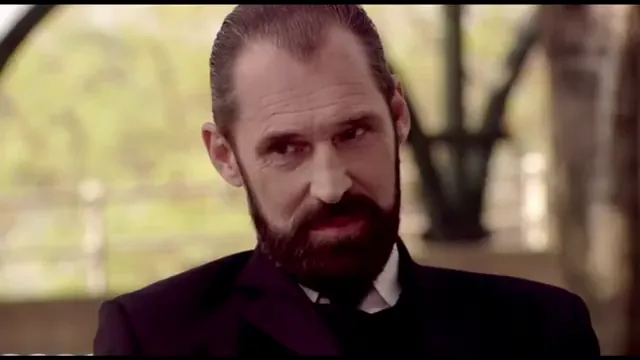🎯 Quick Overview
Trailer
- Director: Pinchas Perry
- Genre: Drama, Biography, Historical, Psychological
- Release year: 2007
- Runtime (length): 1h 45min
- IMDb rating: 6.4/10 (5.1K votes)
- Rotten Tomatoes: N/A
😅 Plot Summary – Badly Explained
A sad philosopher and a doctor with a midlife crisis pretend to be each other’s patients to fix their lady problems, accidentally inventing therapy in 1882 Vienna.
🍿 When Nietzsche Wept: Detailed Plot Synopsis
A desperate plea for help
Vienna, 1882. Celebrated physician Dr. Josef Breuer is approached by the ambitious Lou Salome, who seeks his help for her friend, the renowned philosopher Friedrich Nietzsche. Salome fears Nietzsche is on the brink of suicide due to chronic despair and mysterious ailments. Breuer is initially hesitant but is persuaded by Salome’s persistence and charm to meet with Nietzsche.

A risky therapeutic deception
Nietzsche, proud and resistant to accepting help, is tricked by Breuer and his young protégé, Sigmund Freud, into a unique arrangement. Breuer proposes a mutual therapy session where he pretends to be the patient, seeking help for his own despair, while subtly employing his ‘talking cure’ method on Nietzsche. Simultaneously, Breuer is tormented by his own issues, including a paralyzing obsession with a former patient, Bertha, which manifests in disturbing nightmares.

Shared struggles and philosophical introspection
As their sessions continue, the doctor and the philosopher delve into profound existential themes: death, loneliness, freedom, and the search for meaning. Nietzsche’s philosophical insights challenge Breuer’s conventional life and force him to confront his own unfulfilled desires and anxieties. Breuer’s obsession with Bertha intensifies, pulling him further from his family and into a world of fantasy and despair, mirroring some of Nietzsche’s struggles.

⚠️ Spoilers and Ending Explained
🎬 Cast & Characters
- Josef Breuer (Ben Cross): A prominent Viennese physician wrestling with personal despair and obsession, who attempts to treat Friedrich Nietzsche.
- Nietzsche (Armand Assante): A brilliant but deeply despairing philosopher suffering from physical and emotional anguish, who becomes Dr. Breuer’s unconventional patient.
- Lou Salome (Katheryn Winnick): A passionate and influential poet who approaches Dr. Breuer, urging him to help her troubled friend, Friedrich Nietzsche.
- Bertha (Michal Yannai): A former patient of Dr. Breuer whose case continues to haunt him, fueling his obsessions and nightmares.
- Sigmund Freud (Jamie Elman): A young intern and student of Dr. Breuer, who assists in the plan to treat Nietzsche and learns about the developing talk therapy method.
💬 Memorable Quotes
- Nietzsche: “In order to grow strong, you must first sink your roots deep into nothingness. Learn to face your loneliest loneliness.” – Nietzsche offers this challenging advice to Breuer on how to confront his despair and find inner strength.
- Nietzsche: “God is Dead. We created God, and now we have killed Him.” – A powerful statement from Nietzsche reflecting his philosophy on the decline of traditional religious and moral frameworks in modern society.
- Nietzsche: “And if you gaze for long into an abyss, the abyss gazes also into you.” – Nietzsche imparts this philosophical observation about the inherent danger of confronting profound darkness or difficult truths, which can also affect the observer.
- Nietzsche: “Death only loses its terror when one has consummated one’s life.” – Nietzsche suggests that the fear of death diminishes when a person feels they have lived a full and meaningful life.
💰Box Office
- Budget: N/A
- Domestic Gross: N/A
- Worldwide Gross: N/A
💥 When Nietzsche Wept Reviews
Personal Review
Okay, so I went into ‘When Nietzsche Wept’ expecting something heavy and maybe a bit dry, but I was honestly captivated. The idea of Nietzsche, this legendary philosopher, being treated by Josef Breuer, Freud’s mentor, was just too cool to pass up, even if it’s historical fiction. Armand Assante as Nietzsche was just… wow. He brought such intensity and vulnerability to the role, making you really feel his despair. Ben Cross as Breuer was the perfect counterpart, showing his own quiet desperation. Their conversations felt surprisingly real, like watching two brilliant minds wrestle with life’s biggest questions. Some parts were a bit weird, especially those dream sequences, but they definitely added to the feeling of getting inside their heads. It made me think a lot about loneliness, meaning, and just trying to figure things out as you get older. It’s not a flawless film, but it stayed with me long after the credits rolled.
- Who would enjoy:
- “Fans of philosophical dramas”
- “Viewers interested in the history of psychology and psychoanalysis (with understanding it’s fictionalized)”
- “Readers of Irvin D. Yalom’s novels”
- “Those curious about fictionalized encounters between historical intellectual figures”
- Content warnings ⚠:
- “Rated PG-13 for sexual content and some thematic material”
- “Explores themes of despair, suicide (implied suicidal tendencies), and obsession”
- “Contains surreal and potentially disturbing dream sequences”
Professional Reviews
- Flicker & Ink: “An ambitious film grappling with heavyweights of thought. While Armand Assante delivers a compelling, deeply human portrayal of Nietzsche, the production struggles under the weight of its premise. Uneven pacing and distracting, inconsistent accents detract from the potentially insightful dialogue. It works best as a dramatic ‘what-if’ scenario rather than a historically rigorous piece, offering glimmers of brilliance in its exploration of despair and connection, but ultimately feeling constrained.
- Reel Thoughts Review: “Pinchas Perry’s adaptation of Yalom’s novel attempts to bring complex philosophical and psychological ideas to the screen. The concept of Nietzsche and Breuer in a role-reversing therapeutic relationship is fascinating. However, the execution is often hampered by melodrama and some questionable casting choices, particularly in supporting roles. The dream sequences offer visual flair but can feel disjointed. It’s more successful as an accessible introduction to these figures and concepts than as a truly penetrating character study or cinematic achievement.
Audience Reactions
Viewers were deeply moved by Armand Assante’s powerful performance as Nietzsche.: Many appreciated the film’s attempt to explore complex philosophical and psychological themes in an accessible way, finding the dialogue thought-provoking.
The fictional premise of Nietzsche and Breuer interacting sparked intellectual curiosity.: Despite criticisms regarding historical accuracy and production flaws, viewers found the core story of mutual struggle and unlikely friendship compelling.
Overall Consensus: A polarizing historical drama based on a fictional novel, praised for its engaging exploration of philosophical and psychological ideas and strong lead performances, but criticized for historical inaccuracies, uneven acting, and production limitations.
Awards
🛠️ Behind the Scenes
- “Despite being set entirely in Vienna, Austria, the film was primarily shot on location in Russe, Bulgaria.”
- “The movie is based on the 1992 historical novel of the same name by Irvin D. Yalom, an American existential psychiatrist and author.”
- “The central premise of the film – that Josef Breuer treated Friedrich Nietzsche using a precursor to psychoanalysis – is entirely fictional, though both men and Sigmund Freud were historical figures and known to each other’s circles.”
- “Director Pinchas Perry not only helmed the film but also wrote the screenplay adaptation of Yalom’s novel.”
🖥️ How to Watch When Nietzsche Wept?
Finding where to watch “When Nietzsche Wept” may require checking various platforms. As a film released in 2007, it might be available for rent or purchase on digital platforms like Amazon Prime Video, Apple TV, Vudu, or Google Play Movies & TV. Availability can vary by region and subscription services. Always check your preferred service for the most current options.

🎥 Similar Movies
If you enjoyed When Nietzsche Wept, you might like these similar films:
- Good Will Hunting (1997): Features a brilliant but troubled protagonist undergoing therapy with a compassionate therapist, exploring themes of overcoming psychological despair, self-discovery, and the mentor-mentee relationship.
- Impromptu (1991): Depicts the lives and relationships of European artists and intellectuals (like Chopin, Sand, Liszt) in the 19th century, capturing the era’s intellectual and romantic atmosphere much like ‘When Nietzsche Wept’.
- My Dinner with Andre (1981): A cult classic that is essentially a long conversation between two men discussing life, death, art, and philosophy, appealing to fans who appreciate dialogue-driven films exploring deep existential themes.
- Before Sunrise (1995): While a romance, it’s fundamentally a dialogue-heavy film where two strangers spend a night together discussing life, love, and their views on the world, exploring philosophical and existential themes through intimate conversation.
🛒 When Nietzsche Wept Related Products
- When Nietzsche Wept: A Novel of Suspense: The highly acclaimed novel by Irvin D. Yalom that served as the inspiration for the film, delving deeper into the philosophical and psychological concepts.
- Basic Writings of Nietzsche (Modern Library Classics): A collection of some of Friedrich Nietzsche’s most influential works, including sections from ‘Thus Spoke Zarathustra’, ‘Beyond Good and Evil’, and ‘On the Genealogy of Morals’.
- Studies on Hysteria: A foundational text in psychoanalysis by Josef Breuer and Sigmund Freud, detailing their case studies, including that of Anna O. (Bertha Pappenheim).
- Vienna 1900: Art, Architecture & Design: A lavishly illustrated book exploring the cultural and artistic landscape of turn-of-the-century Vienna, providing context for the film’s setting.
🎧 Soundtrack
When Nietzsche Wept features a captivating soundtrack that enhances the movie’s atmosphere and emotional impact. Here are some notable tracks:
You can find the complete soundtrack on Amazon Music and Apple Music.
🤨 FAQ
‘When Nietzsche Wept’ is based on the 1992 novel of the same name by Irvin D. Yalom. While the film features historical figures like Friedrich Nietzsche, Josef Breuer, and Sigmund Freud, their direct therapeutic relationship as depicted in the film is a fictional premise created by the author for the purpose of exploring psychological and philosophical ideas.
The movie delves into several existential and Nietzschean themes, including confronting despair and loneliness, the search for meaning (‘Will to Power’ vs. ‘Pleasure Principle’), the burden of time, facing death, and achieving freedom from societal or personal constraints. It frames these complex ideas through the therapeutic dialogue between Breuer and Nietzsche.
Yes, a young Sigmund Freud appears in the film as a protégé and confidant of Josef Breuer. The movie depicts Freud observing and discussing Breuer’s experimental ‘talking cure’ methods, hinting at the future development of psychoanalysis, although the central focus remains on the relationship between Breuer and Nietzsche.
The title refers to a moment in the film’s fictional narrative where Friedrich Nietzsche, known for his complex and often stark philosophy, is shown in a moment of profound emotional vulnerability, weeping during his farewell embrace with Dr. Josef Breuer. It symbolizes the humanization of the formidable philosopher and the deep, albeit unconventional, connection formed during their sessions.
🔥 Bonus Content
The reason why lust must be overcome | One Percent Men |
This short clip uses a reference from ‘When Nietzsche Wept’ to explore why overcoming certain desires is important. It’s cool how the movie’s ideas resonate even in modern self-improvement discussions!
✨ Rate
There are no reviews yet. Be the first one to write one.





